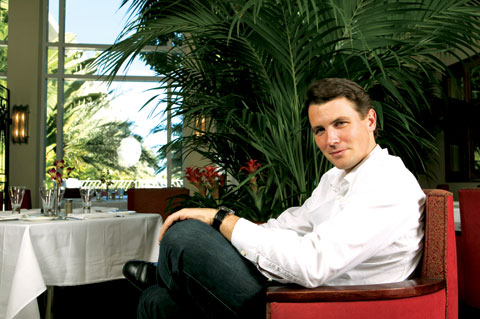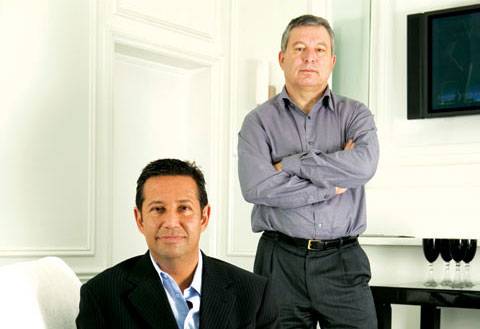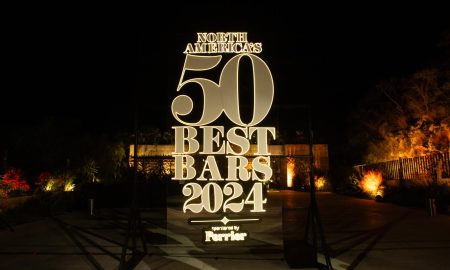Salvatore Ferragamo speaks with Haute Living about his family’s Tuscan Estate, Il Borro
By Sonia Tita Puopolo
Photography by Reynaldo Ales
Salvatore doesn’t even need to explain his family’s love for tradition and elegance; one can just tell by the way he holds his wine glass with three fingers, carefully and graciously.
Salvatore Ferragamo was a renowned 20th century Italian footwear designer who, during the 1920’s, created spectacular designs specifically for Hollywood sets. Ferragamo is responsible for some of the classic and elegant shoe designs that not only graced the runways of the world’s most elite fashion houses, but also helped define generations. The celebrated ruby slippers that Dorothy wore in The Wizard of Oz? Salvatore Ferragamo is responsible for those. The ever-popular wedge heel? Created by Ferragamo. A museum in his honor, erected at the Palazzo Spini Feroni in Florence, displays some this shoemaker to the star’s most famous works, including the Crocodile Court Shoe, made originally for the one and only Marilyn Monroe.
The Ferragamo family has come into its own in the fashion world, and now sells luxury footwear, handbags, eyewear, silk accessories, watches, perfumes, and a fabulous ready-to-wear line. The Ferragamo clan is also behind the haute couture house of Ungaro in Paris, the Lungarno Hotel and Gallery Hotel in Florence, and a home-fabrics company in Italy.
While most of the Ferragamos have followed in the footsteps of the fashion great, heading boldly into the couture world and creating iconic designs in the wake of the family patriarch’s death in 1960, Salvatore Ferragamo’s namesake grandson has created his own path, satisfying the palates of oenpheliacs worldwide with the vintages produced at the family’s estate, Il Borro.
Haute Living had the distinct pleasure of sitting down with Salvatore Ferragamo, the grandson of the renowned footwear designer. Today, Salvatore and his father, Ferruccio, head up the Ferragamo family’s Tuscan estate, Il Borro. Salvatore spoke of his family’s estate with passion and knowledge, traits befitting a man from a family with such an impressive legacy.
The Tuscan hills where Il Borro is located dates back to the Etruscans and Romans, and even to the wars between Guelphs and Ghibellines during the Middle Ages. The noble status came during the Renaissance, when the Dal Borro family took over the land and created a beautiful estate farm, which became loved and respected throughout the Arno Valley in the 18th century. The estate has gone through many different owners throughout the years, an impressive list that even includes the royal Italian family of Savoia Aosta, yet has remained elegant and enchanting, with a deep respect for tradition and refinement, something the Ferragamos celebrate today.
Salvatore doesn’t even need to explain his family’s love for tradition and elegance; one can just tell by the way he holds his wine glass with three fingers, carefully and graciously. When in his presence, it is as if one is in the presence of royalty, yet there is a simplicity about Salvatore that is undeniable.
Salvatore says, “I love to work with my father, producing not just any wines, but some of the world’s finest wines.” The Il Borro estate has been restored under the direction of the Ferragamo family, and now has a strong focus on wine making. Almost one hundred acres have been dedicated to vines for growing three varieties of wines, which he says is “my passion.” Salvatore also works with the world famous enologist, Nicolò d’Afflitto, who claims that the ideal configuration of the land at Il Borro makes it possible to grow the grapes for high-quality wines. d’Afflitto is right: Il Borro has won accolades from Wine Spectator, the Wine Advocate, and Gambero Rosso.
The first wine was produced by Il Borro in 1999, and immediately created a cult following of dedicated wine lovers who crave the complex bouquets of red berries, underbrush, and sweet spices that enrich the flavors of the wines. Production began in 1999 with 6,800 bottles being produced, expanding to 200,000 bottles in 2006. In addition to wine, Il Borro also produces olive oil from century old groves. The estate bursts with more than five thousand olive trees, which produce a robust Extra Virgin Olive Oil each year.
Salvatore explains each type of wine, it is like he is talking about three different women: “The family’s signature wine, Il Borro, is a phenomenal wine; the Pian di Nova is the most luscious and beautiful, a soft and easy to drink wine; the Polissena is a perfect and pleasurable wine.” At the recent opening event for the illustrious South Beach Wine and Food Festival, the debonair Salvatore autographed cases of his family’s wine, and poured vintages from Il Borro for an exclusive “Best of Italy” dinner at famed restaurant The Forge. The dinner served more than eighty top names from the wine world, including president of the United States Sommelier Association, Rick Garced. After departing Miami, Salvatore is off on a whirlwind tour, bringing his wines on a tasting trip across the US, followed by Japan and China, where he will pouring his vintages, and discussing the family’s great history.
It is the story of his family that inspires the young Salvatore. His grandfather was born in Bonito, Italy in the late 1890’s. He immigrated to Boston in 1914, and began working in a cowboy boot factory, eventually breaking into the shoemaking business, thanks to years of hard work and dedication, traits the rest of the family portrays. Salvatore explains, “My great inspiration is the tale of my grandfather, and the tale of my grandmother, who, at the age of 85, is still the president of the Ferragamo family business, and is responsible for growing the company with her sons and daughters for the last 47 years, since my grandfather’s death in 1960. In fact, I am working on an autobiography of her life that should hit the book stores in October, 2007.”
The family’s estate is open for travelers hoping to retreat into the ultimate Italian villa. Guests can choose different accommodations, from a medieval village apartments and farmhouses to the Chiocci Alto, a three level house that can accommodate up to 11. Salvatore says, “Or if one prefers to experience the simple, picturesque lifestyle of the medieval village, the old stone houses at Il Borro are the answer.” The houses boast trussed ceilings, fireplaces, and cotto tile floors, and have been updated to contain 21st century luxuries discerning travelers have come to expect.
The area is not only rich with history and beauty, but also provides countless activities and amenities, like horseback riding, hot air ballooning, fishing, and more. Even cooking lessons are available, as are tours of the winery, where guests are given an inside look at the creation of the great wines, from grape to bottle.
Salvatore says that the main goal of the estate is to have people enjoy the Italian way of life. “The lifestyle in Tuscany is a classical one-a traditional one,” he explains. “We aim to make people feel as comfortable in their surroundings as they are in Ferragamo clothes.”





















